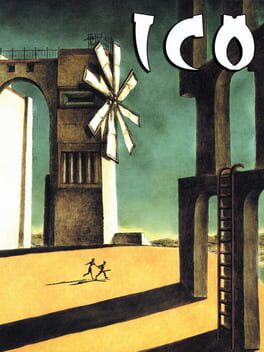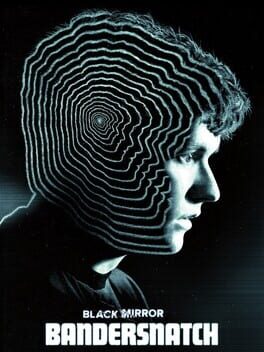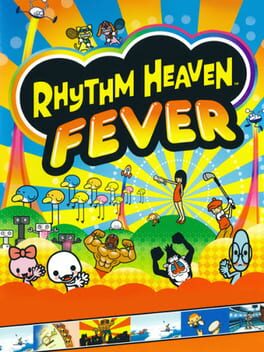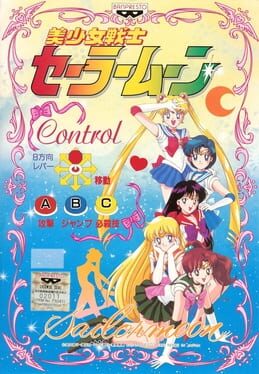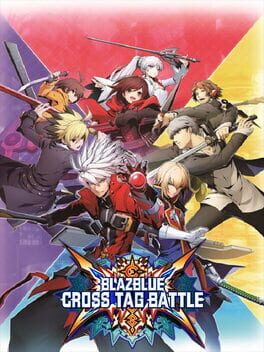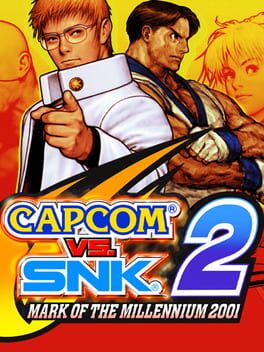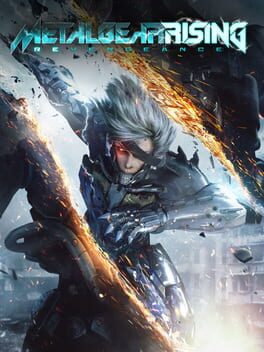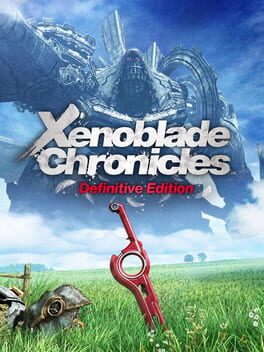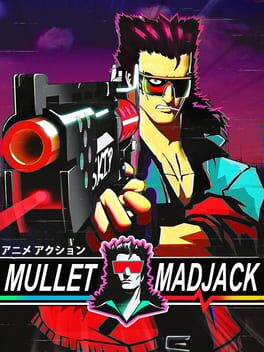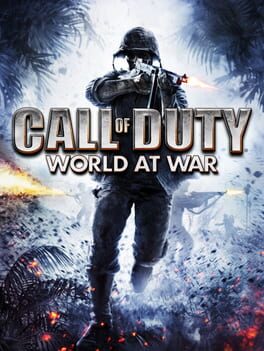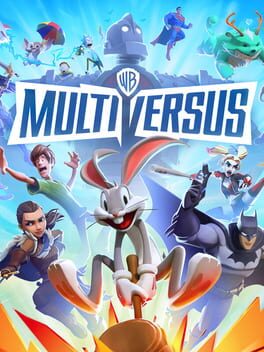bwoe
638 Reviews liked by bwoe
Ico
2012
cherishes human connection in an endearingly immature way. very quaint but also overbearingly self-conscious in its approach to standard conventions, sometimes to a fault? “design by subtraction” sounds genius on paper, though to me it can lend itself to one of two mentalities in execution. it pushes the player towards experimentation; resulting in immense satisfaction when success occurs due to intuitive forward-thinking, or the absence of any emotion at all in triumph as the logic of the solution may have never transpired within the player. thankfully i think ico manages to lean more towards the former overall with only a few moments that underwhelmed my train of thought. the inquisition of the existence of swinging on chains was that of satisfaction. i noticed when jumping on chains that they’d naturally swing back and forth a little, so i figured there was a way to voluntarily execute that on my own and voilà! the action button had answered my prayers. in opposition to this, much later into the game you’re required to blow up the base of a water tower to progress, as for some reason when its blown up part of the tower conveniently falls to form a bridge leading to the next part of the area. this seemed odd to me because there’s… no indication this would happen and i dont think the average person would assume it’d either. you just throw a bomb at the tower because in the scenario there’s no other options of what to do. this was a time where i was met with dissatisfaction in puzzle solving. even if it is kinda minor it still racked my brain a bit.
anyway i believe this “subtraction” psychology applies to more than just the diminishing of useless aspects that dont add to the artist’s vision. namely it contributes to the progression. frequently we’re paraded with the great expanse of the castle utilizing overhead views and wide shots. in continuing our journey we inherently subtract the unknown of that expanse, and perhaps any fears of it that had construed our view of it. i suppose any action in the (or any) game can be interpreted as a subtraction. subtracting enemies, problems, etc etc…
some further things i had noted…
i was heavily reminded of love-de-lic and cing’s work while invested, i think mainly because of the childlike innocence on display in both of our protagonists alongside the organic vibes of the atmosphere respectively. ico’s selflessness struck me in a similar way to moon’s main character and yorda that of another code’s ashley.
the deprivation of any music aside from minor points is an oddly fitting choice that i appreciate a lot. im a sucker for nature ambience and this is no exception. in a way it kept me grounded throughout the entire experience.
the first time i was met with the blissful save theme it had sounded awfully familiar, within seconds my mind uttered “Based God sampled this!” precisely in Flowers Rise on batshit insane mixtape GODS FATHER. i fucking love that tape man i’ll take any chance i can get to shill it.
this was a really resonant experience for me and i’m glad i finally got to this one. i definitely see where people like taro and miyazaki were influenced here. in the industry nowadays you can still feel tremors that this game insinuated way back when (for better or for worse). brilliant display of the importance of environmental attention to detail.
anyway i believe this “subtraction” psychology applies to more than just the diminishing of useless aspects that dont add to the artist’s vision. namely it contributes to the progression. frequently we’re paraded with the great expanse of the castle utilizing overhead views and wide shots. in continuing our journey we inherently subtract the unknown of that expanse, and perhaps any fears of it that had construed our view of it. i suppose any action in the (or any) game can be interpreted as a subtraction. subtracting enemies, problems, etc etc…
some further things i had noted…
i was heavily reminded of love-de-lic and cing’s work while invested, i think mainly because of the childlike innocence on display in both of our protagonists alongside the organic vibes of the atmosphere respectively. ico’s selflessness struck me in a similar way to moon’s main character and yorda that of another code’s ashley.
the deprivation of any music aside from minor points is an oddly fitting choice that i appreciate a lot. im a sucker for nature ambience and this is no exception. in a way it kept me grounded throughout the entire experience.
the first time i was met with the blissful save theme it had sounded awfully familiar, within seconds my mind uttered “Based God sampled this!” precisely in Flowers Rise on batshit insane mixtape GODS FATHER. i fucking love that tape man i’ll take any chance i can get to shill it.
this was a really resonant experience for me and i’m glad i finally got to this one. i definitely see where people like taro and miyazaki were influenced here. in the industry nowadays you can still feel tremors that this game insinuated way back when (for better or for worse). brilliant display of the importance of environmental attention to detail.
Rhythm Heaven Fever
2011
redditors convincing themselves that Metal Gear As Written by Joss Whedon was actually hidden kino instead of yet another unfun platinum games hack and slash that's carried entirely by its soundtrack that just so happens to star post-character assassination raiden this time is one of the most extreme and simultaneously undeserved reputation shifts i've ever seen for a video game
Mother 3
2006
the suburban pastiche of earthbound (and mother) was comforting thanks to its familiarity. it's a game where you can point at the screen and say "look, that's like my life!" pulling money from an ATM, stopping by the mall to grab a burger, or wandering around the natural history museum, these aesthetic choices work precisely because of how the expected unreality of the game world becomes subverted into a representation of reality. it's novel in its presentation, and enhanced by the quirky charm of the townspeople along with the tangents into both goofy myth and unsettling sci-fi horror.
which makes your first moments walking into a similar world after a between-chapters skip of multiple years in mother 3 such a slap in the face. our protagonist lucas, one of the few remaining denizens attempting to reject a new capitalist order, now glumly walks through these same suburban streets. former stalwart geezers contributing to the town's safety have been all but locked away in a dilapitated nursing home, while lucas's peers scarcely older than he work for wages in the nearby clay mines. the cheerful dialogue from the townspeople now solely consists of those chiding lucas for not getting with the times in between questioning why virtually every other defector's house has gone up in flames. it's the same carefree music of adolescence, the same bright thin-line artstyle, the same casual strolls around town, but tainted by your knowledge of the utopia of the society that came before and the decadence of the modernization that has come in its wake. it is, in essence, a loss of innocence. the unfair and early death of lucas's mother at the start of the game shattered it, and post timeskip you get a close glimpse of its proverbial corpse.
it is indeed somewhat funny the lengths that itoi went to establish the despair of modern civilization; endearingly awkward as his writing is, occasionally it gets into simply awkward territory the more it moralizes. yes, there is a token native american stereotype, and yes, his tipi gets blown to smithereens by artificial lightning post-timeskip. the magypsies as well, in attempt to enforce their alien nature given their status as immortal standardbearers of the world as it stands, are othered via their gender representation... which ends up being rather distasteful "okama" cariactures. my reason for pointing these out is not to discredit the rest of the work, but more to note that itoi bit off more than he could chew with some of the themes. he really wanted to demonstrate how fucked modernization is, man! so in the process some of the imagery gets a little hamfisted or straight-up ???... but that first time you walk into the modernized tazmily it hit me so hard.
likewise when you finally arrive at new pork city late in the game, the ghoulish tackiness of it all is so evident. the bizarre international mishmashes and cardboard cutout buildings, like toy props in a set of figurines (or buildings without polygons in the rear like a video game with fixed perspective) they illustrate gestures towards culture generation with vapid facsimile in place of rich tradition. it's a childlike conception of urban life: video games in walking distance and 24/7 screenings of heroes from another world. the idyllic norman rockwell landscape of earthbound has been grafted onto the communal tazmily like metal plates welded to biological creatures. all of it enforced by heiling stormtroopers in sneering pig masks... ok again, the imagery is really hamfisted. let itoi cook!
somehow even with this ideological shift in the people of tazmily, itoi still goes out of his way to illustrate the cruelty that lurks under the otherwise flawless exterior of their transactionless lifestyle. duster's bum leg, a physical reminder of his abuse at the hands of wess, is openly acknowledged, and yet the weight is silently borne by duster himself. his plain looks and questionable hygiene belie his thief tool mastery and serious upright bass chops, regardless of the verbal degredatation his father puts him through. likewise flint, stoic in his initial voiceless protagonist role, suffers a truly heartbreaking outburst of rage late in his campaign, indicating the dam about to burst on the societal shift to come. even lucas and claus play-act fighting with the local dragos at the very beginning of the game; the language of violence is still engrained in the minds of those living outside of capitalism.
the first three chapters are dedicated primarily to this plot, with the old rpg elements streamlined and the party limited. admittedly I'm not a big fan of the parts of earthbound where you're limited to a one or two person party; I just don't think you can come up with strategies that interesting when there's only a couple of moves to work with each turn. likewise, mother 3 provides different perspectives across each chapter with small parties carefully paced around the relative strength of the bosses they'll face. each character at this point can use special attacks and debuffs for free, removing the resource-management usually inherent in jrpgs. this isn't entirely bad, as it allows the player to experiment with various special abilities, but it would've gotten rather tedious after the six or seven hours it lasted. the point at which I got tired of this setup was in the lucas/boney fight against the jealous bass, which virtually necessitates using explosive items in order to outpace the devastating jam sessions they lay on you.
thankfully after this mother 3 wants to remind you that it's a real-ass jrpg, and thus the party is assembled... lucas, black mage kumatora, duster with his thief tools, and boney the dog. out of these mechanically boney is unfortunately undercooked; his only special move is "sniff" which senses the enemy's weaknesses, and his stats are gimped by being unable to use most equipment. thus most of the interesting fighting relies on the other three characters. I love how the mother series crystallizes the heroism of their heroes through making them healing mages, and lucas is no exception. while he has excellent attack, he's also equipped with a bevy of abilities such as setting up shields, buffing stats, and giving full revives to anyone or everyone in the party. kumatora handles all of the debuffs and attack magic, while duster is able to also apply free debuffs in exchange for a middling activation rate.
in turn the bosses get significantly more powerful, especially in the lengthy chapter 7. this whole section serves as a truncated redo of the same kind of "find the macguffin in each area" structure from earthbound, and with each needle pulled at the end of each area comes a more fiendlishly difficult boss. high base defense, extremely strong full-party attacks, switching between physical and PSI attacks, and even being able to destroy your shields at will all make character death frequent, and without smart planning and exploitation of the series's distinctive health counter system, it will be difficult to overcome some of the late-game fights. to my surprise other than the infamous barrier trio fight I didn't find that most of the fights revolved around simple weakness matching either; there's legitimately challenging turn-based slugfests balanced just right not to require grinding as long as you don't mind taking detours for items here and there.
complimenting the basics here are rhythm game elements which require the player to click the attack button in time with the backing beat to create a combo of up to 16 attacks in a row for a notable damage increase. while conceptually simple, the expansively eclectic soundtrack makes following the rhythm often require a significant amount of concentration. beats are dropped occasionally or sections will have tempos that vary, forcing the player to keep track of when they start attacking to ensure they don't get interrupted and lose valuable damage. following the beat itself rarely varies outside of simply tapping the backbeat however, which is a bit disappointing outside of a couple outliers like the 15/8 timpani-led Strong One. other songs occasionally try off-beat rhythms or more complex bass patterns, but unfortunately all of this is held back by the game's inconsistent timing windows. I played this on 3ds through rom injection which is generally considered to be extremely close to hardware-accurate, and yet I consistently noticed that the windows on certain songs required me to be a touch late. anything with eighth notes is a total crapshoot unfortunately, and thus I can see why they limited the songs that contained these pretty significantly. surprisingly enough the final chapter of the game features few difficult songs, making most of the encounters relatively easy to finish with only regular attacks, and I was hoping to hear the really bizarre tunes come out during the final mobs and bosses. however it's obvious the system was meant to be more of a bonus damage system, and thankfully the whole game can be managed without it if you're crafty enough with your PSI and thieves tool use.
without a doubt when compared to its meandering predecessor mother 3 focuses its satire on actually tearing apart the origins of the americana it draws from. at the same time it's a perfectly enjoyable jrpg with a neat rhythm mechanic and the same counter mechanism from earthbound to make timing your actions carefully utterly important; a rarity for turn-based games. as the game comes to a close those who played earthbound will receive an unsettling reminder of the artifacts from those games and the influence they played upon the creation of the world our heroes exist in, and the ending is cataclysmic and only partially resolved. for a game infused with so much levity, it's remarkably grim at the same time. I can only assume this juxtaposition of tones is what itoi was trying to summon all along.
which makes your first moments walking into a similar world after a between-chapters skip of multiple years in mother 3 such a slap in the face. our protagonist lucas, one of the few remaining denizens attempting to reject a new capitalist order, now glumly walks through these same suburban streets. former stalwart geezers contributing to the town's safety have been all but locked away in a dilapitated nursing home, while lucas's peers scarcely older than he work for wages in the nearby clay mines. the cheerful dialogue from the townspeople now solely consists of those chiding lucas for not getting with the times in between questioning why virtually every other defector's house has gone up in flames. it's the same carefree music of adolescence, the same bright thin-line artstyle, the same casual strolls around town, but tainted by your knowledge of the utopia of the society that came before and the decadence of the modernization that has come in its wake. it is, in essence, a loss of innocence. the unfair and early death of lucas's mother at the start of the game shattered it, and post timeskip you get a close glimpse of its proverbial corpse.
it is indeed somewhat funny the lengths that itoi went to establish the despair of modern civilization; endearingly awkward as his writing is, occasionally it gets into simply awkward territory the more it moralizes. yes, there is a token native american stereotype, and yes, his tipi gets blown to smithereens by artificial lightning post-timeskip. the magypsies as well, in attempt to enforce their alien nature given their status as immortal standardbearers of the world as it stands, are othered via their gender representation... which ends up being rather distasteful "okama" cariactures. my reason for pointing these out is not to discredit the rest of the work, but more to note that itoi bit off more than he could chew with some of the themes. he really wanted to demonstrate how fucked modernization is, man! so in the process some of the imagery gets a little hamfisted or straight-up ???... but that first time you walk into the modernized tazmily it hit me so hard.
likewise when you finally arrive at new pork city late in the game, the ghoulish tackiness of it all is so evident. the bizarre international mishmashes and cardboard cutout buildings, like toy props in a set of figurines (or buildings without polygons in the rear like a video game with fixed perspective) they illustrate gestures towards culture generation with vapid facsimile in place of rich tradition. it's a childlike conception of urban life: video games in walking distance and 24/7 screenings of heroes from another world. the idyllic norman rockwell landscape of earthbound has been grafted onto the communal tazmily like metal plates welded to biological creatures. all of it enforced by heiling stormtroopers in sneering pig masks... ok again, the imagery is really hamfisted. let itoi cook!
somehow even with this ideological shift in the people of tazmily, itoi still goes out of his way to illustrate the cruelty that lurks under the otherwise flawless exterior of their transactionless lifestyle. duster's bum leg, a physical reminder of his abuse at the hands of wess, is openly acknowledged, and yet the weight is silently borne by duster himself. his plain looks and questionable hygiene belie his thief tool mastery and serious upright bass chops, regardless of the verbal degredatation his father puts him through. likewise flint, stoic in his initial voiceless protagonist role, suffers a truly heartbreaking outburst of rage late in his campaign, indicating the dam about to burst on the societal shift to come. even lucas and claus play-act fighting with the local dragos at the very beginning of the game; the language of violence is still engrained in the minds of those living outside of capitalism.
the first three chapters are dedicated primarily to this plot, with the old rpg elements streamlined and the party limited. admittedly I'm not a big fan of the parts of earthbound where you're limited to a one or two person party; I just don't think you can come up with strategies that interesting when there's only a couple of moves to work with each turn. likewise, mother 3 provides different perspectives across each chapter with small parties carefully paced around the relative strength of the bosses they'll face. each character at this point can use special attacks and debuffs for free, removing the resource-management usually inherent in jrpgs. this isn't entirely bad, as it allows the player to experiment with various special abilities, but it would've gotten rather tedious after the six or seven hours it lasted. the point at which I got tired of this setup was in the lucas/boney fight against the jealous bass, which virtually necessitates using explosive items in order to outpace the devastating jam sessions they lay on you.
thankfully after this mother 3 wants to remind you that it's a real-ass jrpg, and thus the party is assembled... lucas, black mage kumatora, duster with his thief tools, and boney the dog. out of these mechanically boney is unfortunately undercooked; his only special move is "sniff" which senses the enemy's weaknesses, and his stats are gimped by being unable to use most equipment. thus most of the interesting fighting relies on the other three characters. I love how the mother series crystallizes the heroism of their heroes through making them healing mages, and lucas is no exception. while he has excellent attack, he's also equipped with a bevy of abilities such as setting up shields, buffing stats, and giving full revives to anyone or everyone in the party. kumatora handles all of the debuffs and attack magic, while duster is able to also apply free debuffs in exchange for a middling activation rate.
in turn the bosses get significantly more powerful, especially in the lengthy chapter 7. this whole section serves as a truncated redo of the same kind of "find the macguffin in each area" structure from earthbound, and with each needle pulled at the end of each area comes a more fiendlishly difficult boss. high base defense, extremely strong full-party attacks, switching between physical and PSI attacks, and even being able to destroy your shields at will all make character death frequent, and without smart planning and exploitation of the series's distinctive health counter system, it will be difficult to overcome some of the late-game fights. to my surprise other than the infamous barrier trio fight I didn't find that most of the fights revolved around simple weakness matching either; there's legitimately challenging turn-based slugfests balanced just right not to require grinding as long as you don't mind taking detours for items here and there.
complimenting the basics here are rhythm game elements which require the player to click the attack button in time with the backing beat to create a combo of up to 16 attacks in a row for a notable damage increase. while conceptually simple, the expansively eclectic soundtrack makes following the rhythm often require a significant amount of concentration. beats are dropped occasionally or sections will have tempos that vary, forcing the player to keep track of when they start attacking to ensure they don't get interrupted and lose valuable damage. following the beat itself rarely varies outside of simply tapping the backbeat however, which is a bit disappointing outside of a couple outliers like the 15/8 timpani-led Strong One. other songs occasionally try off-beat rhythms or more complex bass patterns, but unfortunately all of this is held back by the game's inconsistent timing windows. I played this on 3ds through rom injection which is generally considered to be extremely close to hardware-accurate, and yet I consistently noticed that the windows on certain songs required me to be a touch late. anything with eighth notes is a total crapshoot unfortunately, and thus I can see why they limited the songs that contained these pretty significantly. surprisingly enough the final chapter of the game features few difficult songs, making most of the encounters relatively easy to finish with only regular attacks, and I was hoping to hear the really bizarre tunes come out during the final mobs and bosses. however it's obvious the system was meant to be more of a bonus damage system, and thankfully the whole game can be managed without it if you're crafty enough with your PSI and thieves tool use.
without a doubt when compared to its meandering predecessor mother 3 focuses its satire on actually tearing apart the origins of the americana it draws from. at the same time it's a perfectly enjoyable jrpg with a neat rhythm mechanic and the same counter mechanism from earthbound to make timing your actions carefully utterly important; a rarity for turn-based games. as the game comes to a close those who played earthbound will receive an unsettling reminder of the artifacts from those games and the influence they played upon the creation of the world our heroes exist in, and the ending is cataclysmic and only partially resolved. for a game infused with so much levity, it's remarkably grim at the same time. I can only assume this juxtaposition of tones is what itoi was trying to summon all along.
Mullet Madjack
2024
one more minute of this and i'm pretty sure i'll get brain aneurysm and die
the type of game where i'm surprised you don't get actual reddit gold for clearing levels and when you die some neckbeard photoshops you in reddit heaven next to harambe or doge
bad visuals, bad combat, bad story, bad characters, bad dialogue, bad everything. i wonder who thought recreating retro anime aesthethic meant adding rgb lighting and memes in every corner possible
the type of game where i'm surprised you don't get actual reddit gold for clearing levels and when you die some neckbeard photoshops you in reddit heaven next to harambe or doge
bad visuals, bad combat, bad story, bad characters, bad dialogue, bad everything. i wonder who thought recreating retro anime aesthethic meant adding rgb lighting and memes in every corner possible
Hi-Fi Rush
2023
MultiVersus
2024
MultiVersus
2024
Hi-Fi Rush
2023
I feel like not often do you get a game that feels 100% like a passion project, but that's what this game feels like. The whole world of Hi-Fi Rush just screams life, and all the robots that make up its population all have extremely charming and quirky personalities. I had many moments where it got me laughing out loud. The main spotlight of this game, however, lies with the main cast; each of them is filled with so much charm, and together they grow into a heartwarming family.
its truly upsetting that the studio behind this game had the outcome that was put upon them and I hope this game has a everlasting impact
its truly upsetting that the studio behind this game had the outcome that was put upon them and I hope this game has a everlasting impact
